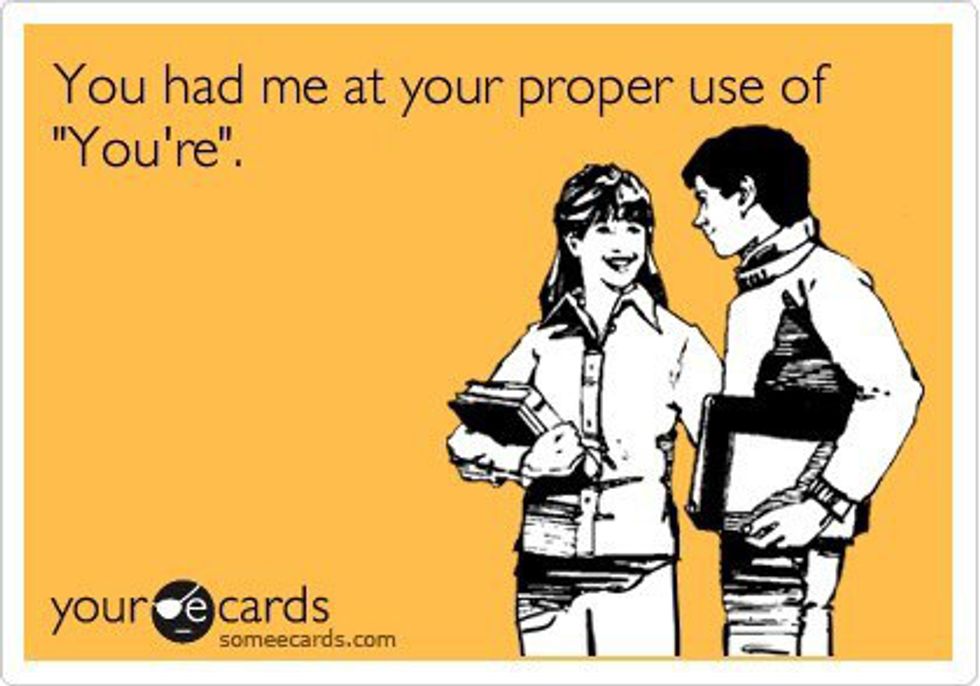Do you speak English? If so, you have probably gotten on my nerves at some point in your lifetime. I am talking about the difference between “your” and “you’re.” 'Your' is a possessive adjective indicating that something belongs to you; it is yours. 'You’re' is the contraction of 'you are,' explaining that you are something, like a quality, feeling, or action. The your vs. you’re argument has been in full swing for centuries, dating back to the Ancient Greek debates on the stage of the Parthenon over the improper uses of yourius and youarius.
However, if you misused the words back then, you were punished by death. (It was something like that, at least.) When did grammatical correctness become so lackadaisical, punished only by the occasional scolding by a resident grammar Nazi? Ross Geller, from Friends, is also famous for his frustration with this common grammatical mistake. To me, the improper usage of your and you’re makes a clown writing on a squeaky chalkboard in a room full of knocked over tarantula cages sound like paradise (and I am deathly afraid of clowns.)
The most extreme violators of this concrete concept are washed up, wanna-be texting gangsters (or middle schoolers, we’ve all been there) who look for short cuts everywhere they go. Not only do these cats break the your vs. you’re rule, but they take this absurdity to a new level with the ever popular “ur”. 'Ur' is a shortcut some knucklehead came up with when thinking that he could do something more important with his life than waste the all-too-strenuous half of a second typing the extra two letters. These hooligans should be deported and brainwashed so they can no longer harm us with their lazy linguistic blunders.
Next in line are the most common perpetrators; the absent-minded average Joes who are not aware of the acute annoyance their confusion is causing for others around them. These individuals are just trying to carry on a normal conversation, nothing fancy or scholarly, just a casual “how was your day?” However, they add an apostrophe and an extra 'e' to the aforementioned statement, and suddenly, the person they are talking to has magically become a 24 hour period of time.
A common question has become a new and impossible statement. On the other hand, consider the all too familiar complimentary bungle “Your great!” Your great what? Your great sweater? Your great kitty cat named Snuggles? Your great is not a compliment; in fact, it’s not even a full sentence. This sentence, excuse me, phrase, needs a noun or a verb before it can even be considered complete. You ARE great. The intent is appreciated, but finish your thought.
Long story short, there is no quick fix for this prosaic problem, but it is spiraling out of control! Soon enough, all grammatical structure will be thrown out the window. English will cease to be the clear, crisp language that we enjoy today. No wonder English is such a hard language to learn, when our own native speakers disregard the finite rules of grammar etiquette.






















